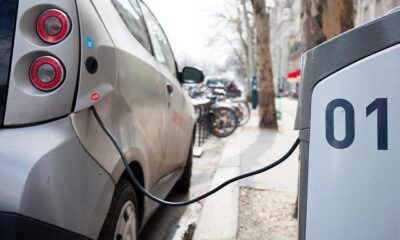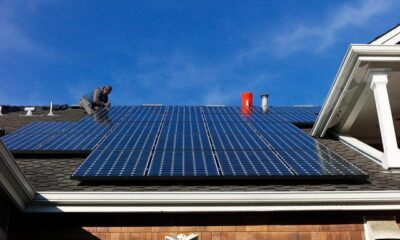

Economy
What does the Autumn Statement have in store for the renewables sector?
The government will publish a joint Spending Review and Autumn Statement on 25 November 2015. Economic security, national security and opportunity are at the heart of this year’s Spending Review, says the Chancellor.
Commenting ahead of the Chancellor’s Autumn Statement, Mark Stewart, a partner at RSM who specialises in renewable energy said: “Over the last few months, the renewables industry has been hammered by a raft of policy proposals which have dramatically affected the financial viability of many new renewable energy schemes and provoked a number of business failures, particularly in the solar energy sector.
“These measures have included the abolition of levy exemption certificates, the removal of seed enterprise investment scheme tax breaks for community energy projects, the proposed closure of the feed-in tariff scheme in January 2016 and the likely repeal of the renewables obligation in March 2016.
“Despite the fact that the Paris climate change conference is just around the corner, anyone hoping for any big gestures in the Autumn Statement to shore up support for the renewables sector is likely to be disappointed.
“‘The main thing we will be looking out for is an announcement on round two of the Government’s Contracts for Difference (CfD) scheme – if indeed there is going to be one. The CfD scheme is designed to reduce the risks faced by low-carbon electricity generators by paying a variable top-up between the market price and a fixed price level. The 2014 allocation round released a budget of:
– Pot 1 (established technologies): £50m, for projects commissioning from 2015/16; and
– Pot 2 (less established technologies) £155m for projects commissioning from 2016/17.
“The Department for Energy and Climate Change announced in July that the 2015 allocation round was to be postponed pending a review of the entire long term support for renewable energy. This has led to yet more uncertainty for those seeking to invest in low carbon electricity generation resulting in a hiatus in the industry’s growth, and a slowdown in jobs and investment. Clarity on this point is urgently required.”


 Environment12 months ago
Environment12 months agoAre Polymer Banknotes: an Eco-Friendly Trend or a Groundswell?

 Features11 months ago
Features11 months agoEco-Friendly Cryptocurrencies: Sustainable Investment Choices

 Features12 months ago
Features12 months agoEco-Friendly Crypto Traders Must Find the Right Exchange

 Energy11 months ago
Energy11 months agoThe Growing Role of Solar Panels in Ireland’s Energy Future




























